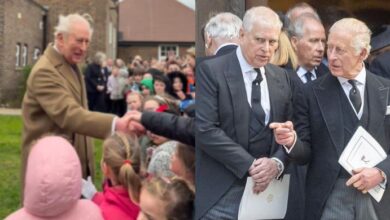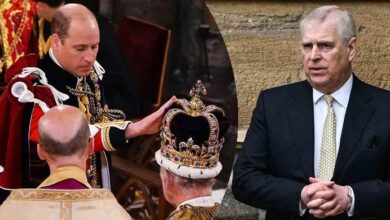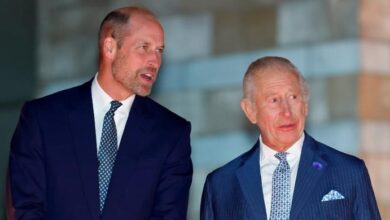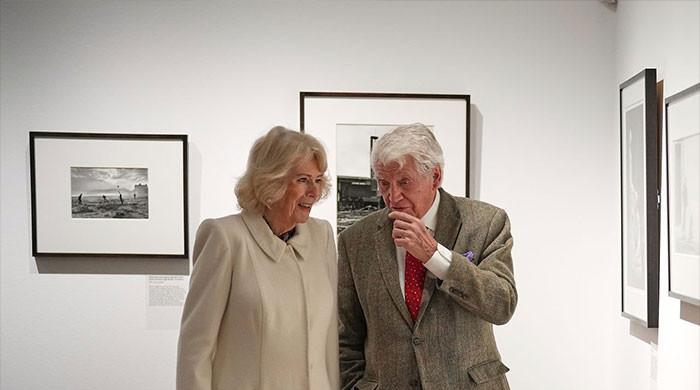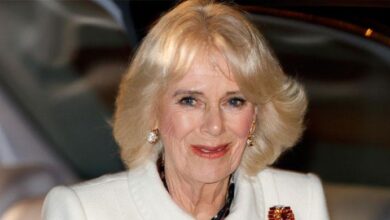Latest News
Royalty
Prince William’s Urgent Plea to Father King Charles As Time Is Running Out
Prince William has recently taken significant steps to prepare for his future role as king,…
Prince Harry
Prince Harry’s Secret Plan Shocks Fans as Royals Face Overwhelming Turmoil
Prince Harry has recently made headlines with an unexpected move that has left his European…
Royalty
King Charles Makes Bold Move to Elevate Prince William As The Monarchy Will Never Be the Same
King Charles is reportedly contemplating a significant move regarding the future of the British monarchy.…
Royalty
Andrew Reveals Shocking Secrets to Senior Palace Official in Major New Meeting
King Charles’ younger brother, Prince Andrew, has been residing at Wood Farm, avoiding the public…
Royalty
Sarah Ferguson Hit Rock Bottom After Scandal As Revealed Ties Are Just the Beginning
Sarah Ferguson has long been a figure of fascination and controversy, but recent revelations have…
Royalty
Is Kate Middleton Joining Husband Prince William for Duchy Duties
Prince William recently traveled alone to Cornwall, marking an important day in his royal duties…
Royalty
Princess Anne’s Triumph Ignites Hope for the Troubled Royal Family
Princess Anne, the dedicated and revered Princess Royal, has achieved a significant victory that has…
Royalty
Prince Harry and Prince William’s Fierce Battle Finally Exposed in Stunning Royal Revelations
Tensions between Prince Harry and Prince William continue to dominate royal discussions, with insiders indicating…
Royalty
King Charles Sends Urgent Message to Prince William and Kate Middleton During Crisis
King Charles is reportedly preparing to delegate a significant role to the next generation of…
Royalty
Prince Harry and Meghan Markle Reclaim Power Amid Royal Turmoil Following Andrew Fallout
Prince Harry and Meghan Markle have returned to the global stage with renewed momentum as…










